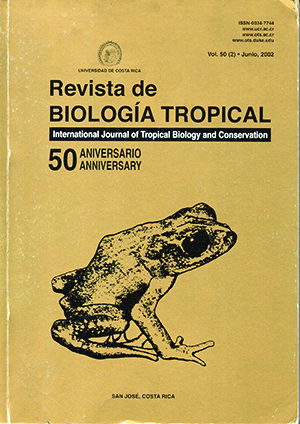Abstract
As a tribute to Revista de Biología Tropical in its 50th anniversary, this review describes some of the main research efforts carried out in the study of the chemical composition and the mechanism of action of toxins present in the venoms of snakes distributed in Latin America. Venom proteins involved in neurotoxicity, coagulopathies, hemorrhage and muscle necrosis are discussed, together with a description of the inflammatory reactions elicited by these venoms and toxins. In addition, the search for inhibitory substances present in plants and animals that may be utilized in the neutralization of venoms is analyzed. Some of the clinical studies performed on snakebite envenomations in Latin America are also reviewed, together with the development of technologies aimed at improving the quality of antivenoms produced in the region. Toxinology has become a fruitful and stimulating research field in Latin America which has contibuted to a better understanding of snake venoms as well as to an improved management of snakebitten patients.##plugins.facebook.comentarios##

This work is licensed under a Creative Commons Attribution 4.0 International License.
Copyright (c) 2002 Revista de Biología Tropical
Downloads
Download data is not yet available.


